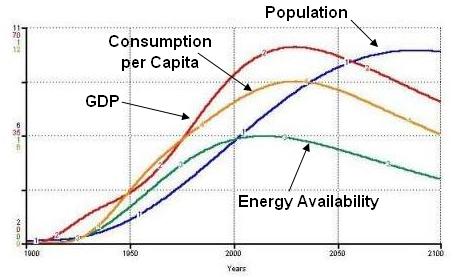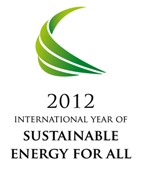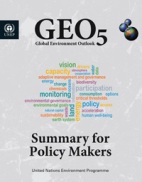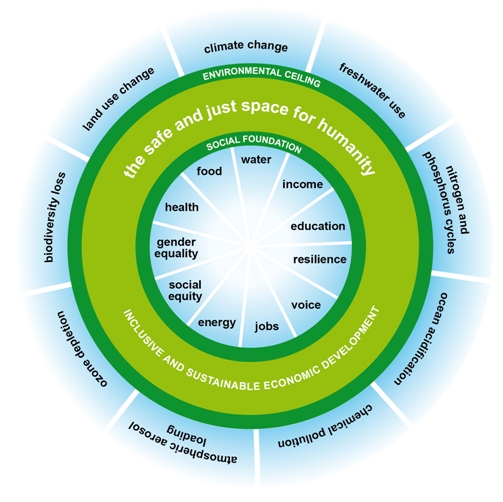|
1. Suggestions for Prayer, Study, and Action
|
LET US PRAY FOR MORE OPEN DIALOGUE BETWEEN SCIENCE AND RELIGION
|
|
"I sing the mighty power of God
That made the mountains rise,
That spread the flowing seas abroad
And built the lofty skies.
"I sing the wisdom that ordained
The sun to rule the day;
The moon shines full at his command
And all the stars obey."
Isaac Watts (1674-1748)
|
"What though the mountains
By plate-tectonic shift,
And Oceans lie within the cup
Made by the landmass drift.
"The skies are but earth's airy skin
Rotation makes the day;
Sun. moon, and planets are akin
And Kepler's Laws obey.
Kenneth Boulding (1910-1993)
|
PRAY IN YOUR OWN LANGUAGE ... PRAY IN YOUR OWN TRADITION ...
PRAY AS A BELIEVER, NONBELIEVER, CITIZEN, SCIENTIST ...
BUT PRAY DAILY ... AND PRAY ALWAYS!
|
|
|
One criterion of the grant is to create and make available, via the Internet, an open-source textbook for use in introductory college courses. A self-imposed criterion is to identify an expand ing field of knowledge, common to all three campuses, where the open-source textbook could provide a sound foundation for effective teaching and learning. To that end, the team guiding the project has selected "sustainability" as the general focus of the University's open-source textbook. It should be noted that "sustainability" was also the field of study identified by Illinois community colleges for a potential a partnership with the University of Illinois. This textbook serves a need identified by faculty teaching in the sustainability area, i.e. the lack of a single, comprehensive, introductory text.
"Sustainability: A Comprehensive Foundation" is a free, open-source textbook available for viewing online or as a download for use on e-readers or printing. First and second-year college students are introduced to this expanding new field, comprehensively exploring the essential concepts from every branch of knowldege – including engineering and the applied arts, natural and social sciences, and the humanities. As sustainability is a multi-disciplinary area of study, the text is the product of multiple authors drawn from the diverse faculty of the University of Illinois: each chapter is written by a recognized expert in the field. Designed for the new generation of e-readers, the book can also be viewed in a browser, saved as a pdf, or printed.
| |
|
|
2. News, Publications, Tools, and Conferences
|
NEWS
|
PUBLICATIONS
|
| |
| |
TOOLS & DATABASES
|
| |
|
CONFERENCES & JOURNALS
|
| |
|
|
3. Advances in Sustainable Development
RECENT ARTICLES IN ANTICIPATION OF
RIO+20
MPs fear global economic crisis will hamper Rio+20 progress, David Thorpe, Energy & Environmental Management, 29 February 2012
UNEP Clarifies Position as Rio+20 Draws Nearer, ICTSD, 24 February 2012
Preparation for the People's Summit at Rio+20, Women on the Road to Rio20, 22 February 2012
Rethinking Growth and Sustainable Development, PolicyShop, 22 February 2012
Road To Rio+20: Ambitious Goals For Sustainable Development? – Analysis, Ong Suan Ee, RSIS, 20 February 2012
Ban calls for global economic model that promotes greater social justice, Secretary-General Ban Ki-moon, United Nations, 20 February 2012
Special issue on institutions for sustainable development, David Le Blanc, Natural Resources Forum, 20 February 2012
Business leaders on sustainable growth and Rio+20, Alana Chloe Esposito, MediaGlobal News, 16 February 2012
Can we live inside the doughnut? Why the world needs planetary and social boundaries, Kate Raworth, Oxfam, 13 February 2012
A safe and just space for humanity, Kate Raworth, Oxfam, 13 February 2012
The Public Trust Doctrine and Rio+20,
Mary Turnipseed et al., NCEAS, UCSB, February 2012
Bold action is needed to make sustainable development a reality, The Elders, 30 January 2012
Initial Discussions on the “Zero Draft” of the Outcome Document for the UN Conference on Sustainable Development (Rio+20), IISD, 30 January 2012
Ambitious UN Sustainability Conference in Rio to Avoid Climate Talk, Alex Newman, New American, 28 January 2012
Five-Year Action Agenda: "The Future We Want",
Secretary-General Ban Ki-moon, UN, 25 January 2012
Global Compact Launches Web Platform to Mobilize Business for Rio+20, UN Global Compact, 23 January 2012
Does green growth make economic sense? Yes, but you have to do it right,
Bert Metz, European Climate Foundation, 16 January 2012
Towards Rio+20, World Democratic Governace Project Association, January 2012
Rio+20 Draft Outcome Document Released,
Bridges Weekly Trade News Digest, 11 January 2012
Leaked document reveals Rio+20 sustainable development goals,
John Vidal, The Guardian, 10 January 2012
The Place of Environmental Education at Rio+20,
Christina Cotter, Human Impacts Institute, 10 January 2012
The Future We Want,
UN CSD, Zero Draft for Rio+20, 10 January 2012
Green Economy: ‘Everyone’s talking about it’ - An analysis of the UNCSD Zero Draft text submissions,
Green Economy Coalition (GEC), January 2012
Road to Rio+20 – Fresh Opportunity to Scale-Up Sustainable Development?, AfricanBrains, 5 January 2012
Rio+20: Preliminary information for participants, ZUNIA, 5 January 2012
Spiritual Dimensions of Sustainable Development, Soetendorp Institute, January 2012
Interreligious Statement Towards Rio+20, Soetendorp Institute, January 2012
Premises for a New Economy, An Agenda for Rio+20, Great Transition Initiative, January 2012
|
4. Advances in Integral Human Development
|
"This Report explores the integral links between environmental sustainability and equity and shows that these
are critical to expanding human freedoms for people today and in generations to come. The point of departure
is that the remarkable progress in human development over recent decades that the Human Development
Report has documented cannot continue without bold global steps to reduce environmental risks and
inequality. We identify pathways for people, communities, countries and the international community to
promote environmental sustainability and equity in mutually reinforcing ways.
"The cover diagram symbolizes how different policies can have different implications for sustainability and
equity. Whenever available, we should prefer solutions that are good for the environment while also promoting
equity and human development. Pursuing sustainability and equity jointly does not require that they be
mutually reinforcing. In many instances they will not be. Sometimes the most feasible alternative involves
trade-offs between sustainability and equity and requires explicit and careful consideration. No trade-off is
isolated from a society’s structural and institutional conditions, and so we must address the underlying
constraints and identify positive synergies between sustainability and equity. This Report is aimed not only at
finding positive synergies but also at identifying ways to build them."
For an insightful essay on human development and social change, see the following:
The Life and Death of Social Change
John Stubley, Centre for Social Poetry, 24 February 2012
|
5. Advances in Integrated Sustainable Development
|
Note from the CASSE editor: "The Natural Resources Forum (vol. 35, no. 4) asked 29 experts, including Herman Daly, “What do you think should be the two or three highest priority political outcomes of the United Nations Conference on Sustainable Development (Rio+20), scheduled for Rio de Janeiro in June 2012?” His answer succinctly sums up the steady-state perspective."
Herman Daly - "The conclusion of the 1972 Limits to Growth study by the Club of Rome still stands 40 years later. Even though economies are still growing, and still put growth in first place, it is no longer economic growth, at least in wealthy countries, but has become uneconomic growth. In other words, the environmental and social costs of increased production are growing faster than the benefits, increasing “illth” faster than wealth, thereby making us poorer, not richer. We hide the uneconomic nature of growth from ourselves by faulty national accounting because growth is our panacea, indeed our idol, and we are very afraid of the idea of a steady-state economy. The increasing illth is evident in exploding financial debt, in biodiversity loss, and in destruction of natural services, most notably climate regulation. The major job of the United Nations Conference on Sustainable Development is to help us overcome this denial and shift the path of progress from quantitative growth to qualitative development, from bigger to better. Specifically this will mean working toward a steady-state economy at a sustainable (smaller than present) scale relative to the containing ecosystem that is finite and already overstressed. Since growth now makes us poorer, not richer, poverty reduction will require sharing in the present, not the empty promise of growth in the future."
|
6. Sustainability Games, Databases, and Knowledgebases
7. Sustainable Development Measures and Indicators
2012 Environmental Performance Index (EPI)
Switzerland Ranks at Top of the 2012 EPI
and Latvia Takes #1 Spot in New Trend EPI Rankings
Ysella Yoder, Yale University, 26 January 2012

The
Summary for Policymakers provides a quick look at the EPI framework and methodology,
and summarizes the overall EPI and Pilot Trend EPI rankings, results, and conclusions.
|
8. Sustainable Development Modeling and Simulation
The graph below is a simple simulation of world population, gross production/consumption, and energy availability trends:

As of EOY 2011, World Population = 7 Billion, World GDP = 61 Trillion PPP Dollars,
World Energy Use = 0.5 Zeta Joules (or approx 82 billion barrels of oil), and
Average Consumption per Capita = 9000 Dollars
The simulation tipping points would seem to approximate current trends. If the supply of usable energy from fossil fuels peaks and declines as shown by the green curve, how much energy would have to be generated from other sources to support the current GDP output? Even for the sake of social solidarity and ecological sustainability, would most people in the "developed" nations be able/willing to "survive" with $9000/year?
The past cannot be changed, and the future is unknown, but there is empirical evidence to the effect that:
1. Fossil fuel resources are high in energy content but are not infinite.
2. Fossil fuel emissions are environmentally detrimental and/or potentially unsafe.
3. Currently known clean energy alternatives offer relatively low energy content.
Given that fossil fuels are being depleted, pollution levels are damaging the environment, and clean energy alternatives may not provide enough energy to sustain industrial economies, is it wise to just continue doing "business as usual" and trusting that some earthshaking technological breakthrough will come to pass soon enough? Is it fair for people in the "developed" nations to keep indulging in energy consumption and waste while approx. one billion people must subsist on $2 per day or less?
|
9. Fostering Sustainability in the International Community
|
UNITED NATIONS
Sustainable Energy for All
INITIATIVE
Three broad objectives to be achieved by 2030:
Ensuring universal access to modern energy services
Doubling the rate of improvement in energy efficiency
Doubling the share of renewable energy in the global energy mix
|

Sustainable Energy for All
|
|
UNITED NATIONS
Global Environmental Outlook (GEO-5)
Summary for Policy Makers
UNEP, 20 February 2012
Three highest priorities:
Aligning governance to the challenges of global sustainability
Transforming human capabilities for the 21st century
Ensuring food safety and food security for 9 billion people
|

Global Environmental Outlook (GEO-5)
|
OXFAM INTERNATIONAL
'The Doughnut'
of Social and Planetary Boundaries for Development
"A Safe and Just Space for Humanity: can we live within the doughnut?"
Kate Raworth, Senior Researcher, Oxfam UK, 13 February 2012
In the run-up to Rio+20 United Nations Conference on Sustainable Development, this discussion paper is an exploration of what such a model of prosperity might look like. It presents a visual framework -- shaped like a doughnut -- which brings the concept of planetary boundaries together with the complementary concept of social boundaries, creating a safe and just space between the two, in which humanity can thrive.

Source: Oxfam UK
Download the paper here
Watch the video here
Join the discussion with Kate Raworth here
|
|
|